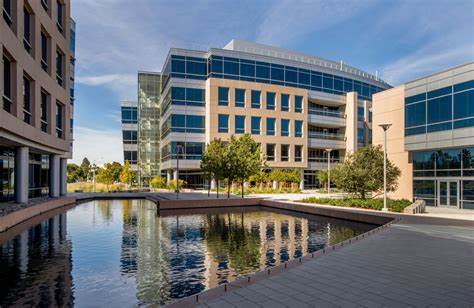
25 Feb The Case for Commercial. Should I Skip Residential Rentals and Just Buy Commercial Real Estate?
The majority of landlords in America lease residential dwellings. After all, everyone needs a place to live. Some residential landlords eventually shift into mixed-use spaces, such as a building with a commercial space on the first floor and apartments above. Yet some landlords simply lease commercial spaces. I know some people who are highly successful and have never dealt with a residential tenant.
First, let’s describe what I mean by commercial. It encompasses a lot of things. Commercial real estate includes strip malls, big box stores, malls, apartment buildings with 5+ units, warehouses, gas stations, railroad facilities, airports, amusement parks, houses used in commercial zones as offices or clinics, hospitals, quarries, skyscrapers, large tracts of land, and more.
Let’s make the case for commercial. Here are a number of reasons why you want to own commercial real estate.
- Longer leases. Some commercial leases may go for 5 years with multiple 5 year extensions. Some leases even go for 99 years! The typical residential lease is for 1 to 2 years max. A longer lease gives you peace of mind and will reduce turnover costs and vacancy losses.
- Evictions of tenants can be less restrictive. If a residential tenant doesn’t pay, in most areas the landlord can only change the locks and take possession of their property with a court order that has not been appealed. With commercial real estate, sometimes there can be a confession of judgment or the right to change the locks should the tenant fail to pay.
- Many commercial leases are triple-net, which means the tenant pays for insurance, taxes, and utilities. The landlord may have less responsibility than a residential landlord.
- Many dealings may involve a lot less emotion. If you’re dealing with someone’s home, a lot of emotions can be involved. With a commercial lease, it’s just business.
- Long-term commercial tenants often pay more per square foot. Some commercial real estate can be worth a pretty penny. A place at a busy intersection, or a building in a specific area that is zoned for a particular business, or a specially outfitted property can command a higher rent.
- Commercial real estate in the right location could appreciate faster than residential real estate. A high traffic count for a retailer is invaluable. A specific business may seek a type of zoning that’s only available in a particular area. A university looking to expand may pay any price to buy up adjoining parcels.
- Commercial tenants often outfit the space their way, even covering most if not all of the expense. Commercial tenants may need their customers to have a specific experience, so they will invest the money to make the place look great. The landlord might not have as much to fix up or be responsible for. Some landlords even offer a “vanilla box,” which means that they’re only offering an open space that the tenant must fit out.
- Commercial tenants may be less likely to move because they don’t want to lose customers. If a business moves even one block away, they will lose a certain percentage of customers. Some businesses crave the busy intersection or the place with abundant parking. There’s no need to leave when customers are well served. Perhaps you can even team up with a growing business to acquire and build out additional locations for them.
- In some commercial leases, the landlord collects a percentage of the tenant’s sales which increases the upside. This arrangement makes it more of a partnership. Each party has a vested interest in seeing the other succeed. This is common with shopping malls. The landlord seeks to increase foot traffic, which helps the shops generate more sales.
- Commercial loans can be less dependent on a person’s credit score, personal income, and debt to income ratio. Some commercial loans do not involve a personal guarantee from the principal borrower. Some loans examine only the property’s debt service coverage ratio. If a business owner has poor credit or a lot of personal debt, a loan might still be granted based solely upon the creditworthiness of the enterprise.
- Commercial deals can be huge and involve more collaboration with partners, lenders, developers, architects, contractors, politicians and many others. There are more opportunities for networking with influential and high-level people.
- Depreciation benefits can be lucrative and may even put you in a lower tax bracket. Depreciation of a commercial property can be spread over 39 years versus 27.5 for a residential dwelling. Depreciation for equipment is accelerated according to various schedules, and some commercial properties involve a lot of equipment.
- Commercial properties typically have more value-add opportunities. Adding five more bedrooms to a house has diminishing returns to the value (and may even reduce the value!), yet with commercial properties the right upgrades can dramatically increase the value. Splitting up a former Kmart building into multiple smaller units may significantly increase the rental income, foot traffic, and value of the building. Even bulldozing it and building a new facility could be lucrative. The possibilities are endless.
So why might an investor not pursue commercial real estate?
- A lot more money may be needed. Residential properties can be cookie-cutter and involve lucrative low-interest loans. Even hard money lenders may be predisposed to residential loans because of the simplicity. Commercial loans involve bigger down payments and more fees. An investor with limited funds may have to save up their money before getting started, or they will have to give up some equity to bring in partners.
- Longer vacancy costs can add up. While commercial spaces can stay rented for decades, vacancy periods could last months or even years when looking for the right tenant. Some investors may not be able to ride out such a long period. A residential dwelling usually can be rented quickly.
- More governmental approvals and regulations can slow a project. A residential renovation may simply involve pulling permits, whereas a commercial renovation project could require more approvals and scrutiny.
- Financing costs will be higher. Commercial loans almost always involve higher interest rates than residential loans. Commercial loans usually involve shorter amortization periods and balloon payments within 5 to 10 years.
- More creativity may be needed to determine the highest and best use and then find the right tenant. A house is a house is a house. If it looks clean, neat, and sturdy, you can find someone to live there. A commercial property in need of a turnaround can create some uncertainty. What if you pivot by seeking a different type of use and it doesn’t attract the type of tenants you want?
You can build tremendous cash flow and wealth through residential and commercial real estate. You don’t have to start off in residential to one day graduate to commercial. If commercial real estate fascinates you, educate yourself and connect with others in the commercial world. Take the leap and acquire a commercial property! My first deal was a 5-unit apartment building and the very next day I bought an 8,000 sq. ft. commercial building. I didn’t have a job when I bought those two buildings. I took out a mortgage loan for the purchase of the 5-unit and obtained owner financing for the commercial building. Let me know how your investing adventure is going!
Tai DeSa is a graduate of The Wharton School of the University of Pennsylvania. He became a full-time real estate investor in 2004 after serving in the U.S. Navy. Tai made colossal mistakes in investing (and learned some things along the way). Tai has coached hundreds of entrepreneurs, real estate investors, and real estate agents on how to increase their income and net worth. He has helped hundreds of homeowners avoid foreclosure through successful short sales. Check out Tai’s books on Amazon.com. Tai may be available for coaching and speaking engagements on a variety of real estate topics. Send an email to tai@investandtransform.com.






No Comments